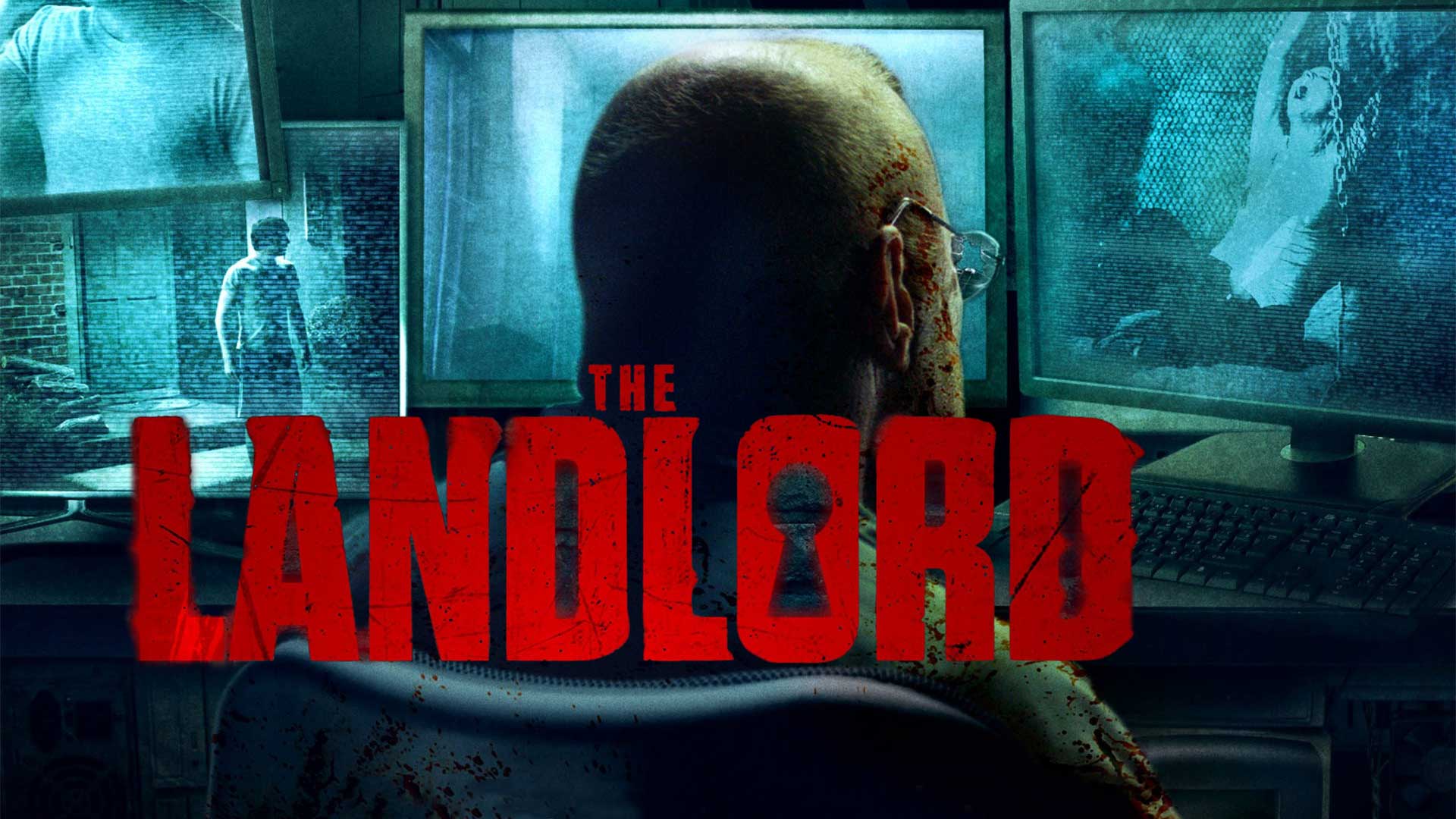
The Landlord is a classic film that has captivated audiences since its release in 1970. Directed by Hal Ashby and starring Beau Bridges, the movie tells the story of a well-to-do white man named Elgar who buys a tenement building in a predominantly African American neighborhood. As Elgar tries to navigate the challenges of being a landlord, he quickly learns about the racial and socioeconomic inequalities that exist in the world. The Landlord explores themes of race, class, and the struggle for social justice in a thought-provoking and often humorous way. With its powerful storytelling, brilliant performances, and timeless message, The Landlord remains a significant and influential film in cinema history. In this article, we will dive into 49 fascinating facts about The Landlord that will deepen your appreciation for this groundbreaking movie.
Key Takeaways:
- “The Landlord” is a groundbreaking film from 1970 that explores important social issues like race, gender, and gentrification, earning critical acclaim and leaving a lasting impact on cinema history.
- With its powerful storytelling, memorable characters, and thought-provoking themes, “The Landlord” continues to inspire filmmakers and resonate with audiences, making it a must-watch classic for movie enthusiasts.
The Landlord was released in 1970.
This groundbreaking film arrived on the big screen in the early 70s, captivating audiences worldwide with its thought-provoking storyline and stellar performances.
Hal Ashby directed The Landlord.
Renowned filmmaker Hal Ashby skillfully brought this powerful story to life, showcasing his unique directorial style and remarkable storytelling abilities.
The Landlord marked Ashby’s directorial debut.
Believe it or not, The Landlord was Ashby’s first feature-length directorial venture, establishing him as a force to be reckoned with in the world of cinema.
The Landlord was based on a novel.
The film drew inspiration from the novel of the same name by Kristin Hunter, providing a rich and compelling source material for the captivating on-screen adaptation.
The Landlord boasts an incredible ensemble cast.
Featuring an outstanding group of actors, including Beau Bridges, Diana Sands, Pearl Bailey, and Lee Grant, the film showcases the talents of both established and emerging stars.
The Landlord addresses important social issues.
Highlighted in this thought-provoking film are themes of race, class, and gentrification, offering a powerful commentary on the social fabric of the time.
The Landlord received critical acclaim.
Upon its release, The Landlord received widespread praise from critics, who hailed it as a groundbreaking and poignant exploration of societal issues.
The Landlord won several awards.
The film’s exceptional storytelling and performances garnered recognition, earning it accolades at various award ceremonies.
The Landlord was nominated for two Academy Awards.
Recognizing its immense impact, the film received nominations for Best Supporting Actress (Lee Grant) and Best Writing, Screenplay Based on Material from Another Medium (Bill Gunn).
The Landlord tackles racial dynamics head-on.
One of the film’s most central themes is the exploration of racial tensions, highlighting the complexities and struggles faced by its diverse characters.
The Landlord addressed gender inequality as well.
In addition to its examination of racial dynamics, the film delves into gender inequality, presenting nuanced portrayals of women and their experiences.
The Landlord paved the way for future socially conscious films.
With its unflinching portrayal of societal issues, The Landlord served as a trailblazer, inspiring a new generation of filmmakers to tackle challenging topics.
The Landlord remains a timeless classic.
Despite being released over five decades ago, the themes and messages of The Landlord continue to resonate with audiences today, solidifying its place in cinematic history.
The Landlord was financially successful.
Not only did The Landlord receive critical acclaim, but it also achieved commercial success, cementing its status as a must-watch film.
The Landlord showcases exceptional cinematography.
The film’s breathtaking visuals, captured by legendary cinematographer Gordon Willis, elevate the storytelling and create a visually stunning experience.
The Landlord tackles taboo subjects with sensitivity.
Handling delicate subjects with care, the film explores topics such as interracial relationships and social prejudices, shedding light on the complexities of these issues.
The Landlord features a memorable soundtrack.
Complementing the movie’s powerful narrative is a mesmerizing soundtrack composed by Al Kooper, enhancing the overall viewing experience.
The Landlord was a critical darling at the Cannes Film Festival.
At the prestigious Cannes Film Festival, The Landlord received high praise and accolades, solidifying its status as a groundbreaking cinematic achievement.
The Landlord explores the impact of gentrification.
A central theme of the movie is gentrification, shedding light on its effects on communities and the lives of its residents.
The Landlord showcases the complexities of human relationships.
Through its multi-dimensional characters, The Landlord presents an honest and thought-provoking examination of the intricacies of human connection.
The Landlord tackles racial stereotypes.
The film challenges racial stereotypes by presenting nuanced and authentic portrayals of its diverse cast of characters.
The Landlord offers a unique blend of drama and humor.
Balancing intense dramatic moments with lighthearted and humorous scenes, The Landlord creates a well-rounded and captivating viewing experience.
The Landlord addresses the importance of community.
By exploring the dynamics of a close-knit community, the film underscores the significance of collective support and understanding.
The Landlord was ahead of its time.
With its progressive themes and bold storytelling, the film was far ahead of its time, paving the way for future cinematic masterpieces.
The Landlord continues to inspire filmmakers today.
The impact of The Landlord can still be felt in contemporary cinema, as it serves as an inspiration for filmmakers striving to create thought-provoking and socially relevant works of art.
The Landlord depicts the complexities of identity.
Through its diverse cast of characters, the film delves into the intricacies of identity and self-discovery.
The Landlord showcases authentic performances.
The actors’ powerful portrayals in The Landlord create a sense of realism and authenticity, drawing audiences into the story.
The Landlord tackles social privilege.
The film highlights the disparities in social privilege and offers commentary on the impact of these inequalities on individuals and communities.
The Landlord explores the concept of home.
Examining the notion of home and belonging, the film delves into the emotional depths of its characters’ quests for a place to call their own.
The Landlord features memorable quotes.
From poignant reflections to witty one-liners, the film’s dialogue is filled with memorable quotes that resonate long after the credits roll.
The Landlord challenges traditional gender roles.
Through its strong female characters, the film challenges traditional gender norms and highlights the importance of female empowerment.
The Landlord dives into the human desire for change.
The film examines the intrinsic human need for change and the pursuit of a better life, even in the face of adversity.
The Landlord was a turning point in Hal Ashby’s career.
Following the success of The Landlord, Hal Ashby went on to helm several critically acclaimed films, solidifying his status as a visionary director.
The Landlord features nuanced storytelling.
The film’s compelling narrative weaves together various storylines, presenting a mosaic of interconnected lives and experiences.
The Landlord explores the power dynamics of privilege.
Examining the effects of privilege and power dynamics, the film provides a sobering reflection on societal inequalities.
The Landlord was a catalyst for social change.
Through its thought-provoking exploration of social issues, The Landlord ignited conversations and encouraged a deeper understanding of the human experience.
The Landlord continues to resonate with audiences today.
The film’s timeless themes and powerful storytelling ensure its relevance and impact, even in the present day.
The Landlord challenges viewers to confront uncomfortable truths.
By unflinchingly addressing difficult subject matters, the film pushes audiences to reflect on their own biases and perceptions.
The Landlord showcases the power of unity.
In the face of adversity, the film’s characters find strength and resilience through their shared experiences and mutual support.
The Landlord fosters empathy and understanding.
Through its authentic and compassionate storytelling, the film encourages viewers to empathize with and understand characters from diverse backgrounds.
The Landlord was a critical and commercial success.
Not only did the film receive critical acclaim, but it also resonated with audiences, solidifying its place as a beloved classic.
The Landlord was praised for its cinematography.
Gordon Willis’ masterful cinematography captured the essence of each scene, further enhancing the film’s emotional impact.
The Landlord was an influential film of its time.
With its bold storytelling and unapologetic examination of socio-political issues, The Landlord left an indelible mark on the landscape of cinema.
The Landlord launched the careers of several talented actors.
For many cast members, The Landlord served as a launching pad for successful and enduring careers in the film industry.
The Landlord is a testament to the power of storytelling.
The film’s ability to engage, educate, and inspire is a testament to the enduring power of the cinematic medium.
The Landlord examines the importance of social change.
As the characters navigate a changing society, the film prompts viewers to reflect on the significance of progress and social transformation.
The Landlord promotes empathy and compassion.
By shining a light on the struggles faced by its characters, the film fosters empathy and encourages compassion towards others.
The Landlord has a lasting legacy.
Decades after its release, The Landlord continues to leave an indelible impact on audiences and filmmakers alike.
The Landlord is a must-watch for film enthusiasts.
With its compelling storytelling and resonant themes, The Landlord is a cinematic gem that deserves a place on every movie lover’s watchlist.
So there you have it, folks! 49 fascinating facts about the movie The Landlord. From its groundbreaking social commentary to its iconic performances, this film has undoubtedly earned its place in the pantheon of great cinema. If you haven’t seen it yet, make sure to add it to your must-watch list and experience the power and brilliance of The Landlord for yourself!
Conclusion
With its captivating storyline, exceptional performances, and thought-provoking themes, The Landlord is truly a must-watch movie. From exploring issues of race, class, and identity to highlighting the complexities of human relationships, this film offers a powerful and poignant commentary on society. With its unique blend of humor and drama, The Landlord entertains and engages viewers from start to finish. Whether you are a fan of indie films or simply looking for an impactful movie experience, The Landlord is the perfect choice. So, grab your popcorn, settle in, and prepare to be immersed in the captivating world of The Landlord.
FAQs
Q: Who directed The Landlord?
A: The Landlord was directed by Hal Ashby.
Q: When was The Landlord released?
A: The Landlord was released on May 20, 1970.
Q: What is the genre of The Landlord?
A: The Landlord falls under the genre of comedy-drama.
Q: Who are the main actors in The Landlord?
A: The main actors in The Landlord are Beau Bridges, Louis Gossett Jr., Lee Grant, and Diana Sands.
Q: Where was The Landlord filmed?
A: The Landlord was primarily filmed in New York City, USA.
Q: Is The Landlord based on a true story?
A: No, The Landlord is not based on a true story. It is a fictional film.
Q: What are some of the major themes explored in The Landlord?
A: Some of the major themes explored in The Landlord include racial tensions, societal norms, privilege, and the pursuit of happiness.
Q: Is The Landlord suitable for all age groups?
A: The Landlord is recommended for mature audiences due to its adult themes and content.
Q: Did The Landlord receive any awards or nominations?
A: Yes, The Landlord was nominated for two Academy Awards: Best Supporting Actress (Lee Grant) and Best Original Screenplay (Bill Gunn).
Q: How long is The Landlord?
A: The Landlord has a runtime of approximately 1 hour and 52 minutes.
Was this page helpful?
Our commitment to delivering trustworthy and engaging content is at the heart of what we do. Each fact on our site is contributed by real users like you, bringing a wealth of diverse insights and information. To ensure the highest standards of accuracy and reliability, our dedicated editors meticulously review each submission. This process guarantees that the facts we share are not only fascinating but also credible. Trust in our commitment to quality and authenticity as you explore and learn with us.


